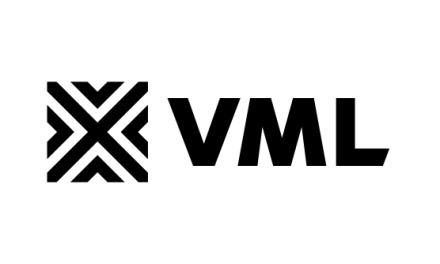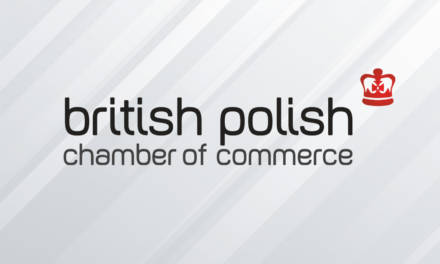
By Agnieszka Kulikowska, senior partner & global DE&I ambassadors’ head in Page Executive

Agnieszka Kulikowska, senior partner & global DE&I ambassadors’ head in Page Executive, talks to the BPCC’s Michael Dembinski about the changes taking place across recruitment in Poland, driven by demographics, IT, wage pressure, and the shifting trends on global markets.
I’d like to look at the Polish labour market as a whole, and then zoom into the specific parts of it that PageGroup focuses on – executive search, managers and experts, and recruitment for global business services/shared services. The current situation in Poland is above all driven by demographics, with half the number of young people entering the market each year compared to the situation 20 years ago. From 700,000 Poles born in 1982, the number fell to 350,000 in 2002. When Poland entered the EU in 2004, it had the highest unemployment rate of any member state – today it has the second lowest, after Malta. For employers this means a tight labour market with salaries increasing faster than inflation, and a struggle to retain key people. How do you assess this big picture from the perspective of a recruitment firm?
The competition for talent is still fierce indeed and companies need to make sure their overall offer is aligned with what employees now seek in their relations with employers. People are now much more open to change jobs every couple of years, spending 15 years in one company is less common than it used to be. Among the candidates we engage in recruitment projects on behalf of our clients, the effective unemployment rate is 0%.
A few years ago, typically only talents on director and board levels were recruited via direct search activities, so contacting them directly. When recruitment of IT experts became a hot market topic – this sort of approach to these candidates become necessary as many IT professionals were contacted by head hunters in relation to five to ten job offers per week. Nowadays, the best candidates at expert and managerial levels in all sectors also expect to be contacted directly. Recruiting via advertisements has become less effective and gives one access to only the most active part of the talent pool. Companies need to evaluate their need for talent with the resources they will dedicate to securing it.
When a newcomer decides to relocate some corporate functions to Poland, opening a new shared-services centre in a major Polish city, it has the power of arbitrage. Salaries in Poland are still lower than in Western Europe or the US, so paying new recruits 15%-20% over and above the local rate makes sense. But an incumbent, that has a tight budget costed around local market conditions doesn’t have this luxury. How can firms protect their human resources against the poaching in such cases?
We analysed the broader topic of what’s important to employees worldwide in our Talent Trends survey last year. The responses from almost 70,000 participants from around the globe were in line with those shared by people in Poland – in surveys and in our everyday practice. A good salary coupled with real possibilities for development and flexible work (understood as hybrid office / work from home and flexible hours) is what’s fundamental. If a company becomes less competitive in the first aspect, it really needs to make sure it can excel in the following two to attract talent. Companies expecting people to work from the office full time are missing out on the best talent.
I mentioned Poland’s ever-shrinking labour market; what structural solutions are required? To what extent can Poland look to migrants to fill the gaps? Should employers be reaching out to older groups of employees? What should the government’s role be in helping employers to find employees?
As a country, we’re already employing more foreigners than previously. An example would be the SSC sector where up to 20% of people in large shared services centres are foreign nationals. With all the job possibilities, we have become an attractive market for candidates, especially if we compare with the high unemployment rates in Spain and Portugal, etc, so people moving here for work is becoming quite common in terms of white collar jobs. In terms of blue collars – an organised structured approach is needed, including the participation of the government. Looking at the market holistically – we will need to be able to benefit from wider talent pools, also among older generations. The current market bias against employing 55+ year olds needs to be tackled as employing them will help engage a large, experienced talent pool into companies with a huge benefit to them.
Diversity, equity and inclusion (DEI) has become an important concept for corporate HR; how can DEI benefit employers struggling to recruit and retain employees in the context of the Polish labour market? Do you see and difference in how companies in Poland approach DEI compared to, say, the UK or the US?
My advice to companies would be to focus on first building and then communicating around a company culture where the overall purpose of the organisation is linked to broader societal goals, aligning with ESG and DE&I topics. These are very important for prospective candidates and highlighting this can help attract them. Our studies show that they are the next in line of importance after the three key elements I mentioned above.
The key DE&I topics currently discussed in Poland revolve around making sure more women are promoted into managerial and leadership positions, a focus on combating ageism, being inclusive towards people with disabilities, and understanding neurodiversity. Inclusion of LGBTQ+ people is another area where a lot is happening, with companies introducing the same rights and benefits internally for same-sex partners to bridge the gap in the current Polish law. In the US and UK, these topics have already been discussed (though not resolved) extensively for years and also others are debated and actioned upon: ethnical and race diversity, social mobility (so moving between classes), engaging more army veterans in recruitment.
AI has the potential to massively boost productivity, especially in the services sector – to what extent – and how quickly – will AI’s impact make itself felt in Poland’s shared-services centres and BPO operations? How do you see the future of AI in the labour market – what risks do you see alongside the benefits?
As per data by ABSL, 50% of existing and 80% of new processes in SSCs and BPOs in Poland are from the KIBS (Knowledge-Intensive Business Services) category meaning they are more advanced and mainly currently delivered by humans. The rest are more simple processes, and a part of them will probably be substituted by AI. This is a risk but also an opportunity for people employed in these centres to upskill to work on the complex ones. AI will come for the simpler task at first. It may also have the power to revolutionise the way IT works, as many developer jobs could be impacted. For now we hear more buzz than actual job-reducing AI implementations, but this will probably change over the next three years.
Turning to executive search – is Poland seen globally as a source of experienced corporate managers? What is Poland’s reputation in terms of the quality of its C-suite executives? Can you make any generalisations in terms of their strengths and weaknesses when compared with their peers globally?
Yes, Poland has become a scouting ground where international companies look for senior talent for their regional and global corporate functions, alongside London, Amsterdam, Frankfurt, Paris and other Western European cities This is a large part of the work that our Polish Page Executive team has been doing, with tens of executive search mandates among the 217 we completed in the last 3 years focused on finding, attracting and evaluating such executives Examples include global finance directors, global marketing, supply chain, procurement, HR, operations directors. Also roles related to transformation – within operations, finance and digital. Candidates with general management experience are sought after and Poles managing clusters on the CEE level are now more often being approached for Europe and EMEA-wide roles. Many Poles being promoted into global roles and moving abroad and, another trend, many decide to move back to Poland for such senior opportunities.
In terms of “the why” – why companies choose to look for their senior talent here – Poles are appreciated for their international experience. More than 435,000 people work within global business services here, one of the fastest growing sectors of the Polish economy. Many executives progressed in their careers from operational to managerial and then strategic roles with increasing regional and global oversight. Poles are also valued highly for their work ethics and drive to show results, deliver and get things done. Our knowledge of English and a cultural alignment with Western colleagues is another important factor. We are learning how to look with a broader helicopter view – and we are learning fast.
Are you observing the trend to near-shoring or ‘friend-shoring’ jobs to Poland from more volatile parts of the world? To what extent is Poland still competitive when it comes to locating new foreign direct investments? Is near-shoring more of a trend in manufacturing supply chains than it is in services?
Poland is already no longer viewed as a low-cost location in terms of business services, we have progressed to being a mid-tier one. Our international value proposition needs to be aligned with that – so focus on the more advanced processes is key. In that area we are competitive. Simpler, mass and more standardised tasks are being moved to Asia. There are companies moving basic processes to Poland too – usually those transitioning to the SSC model quite late and wanting to ensure a perceived better cultural fit between their new Polish employees and those in the EU headquarters. In terms of production – Poland is the number one manufacturing location in Europe in many categories. The pandemic showed that relying on supply chains heavily focused around distant China is not optimal. The last years have been a shift to nearshoring production to Poland, with the trend currently booming. Overall, we have very interesting times ahead.

Page Executive is the executive search brand of the London Stock Exchange-listed PageGroup and provides a range of search, selection and talent management solutions for organisations on a permanent and interim basis. Our team is composed on 290 partners, consultants and researchers in 39 offices across the globe. We changed the lives of more than 2,000 executives by placing them into roles worldwide in 2023.























